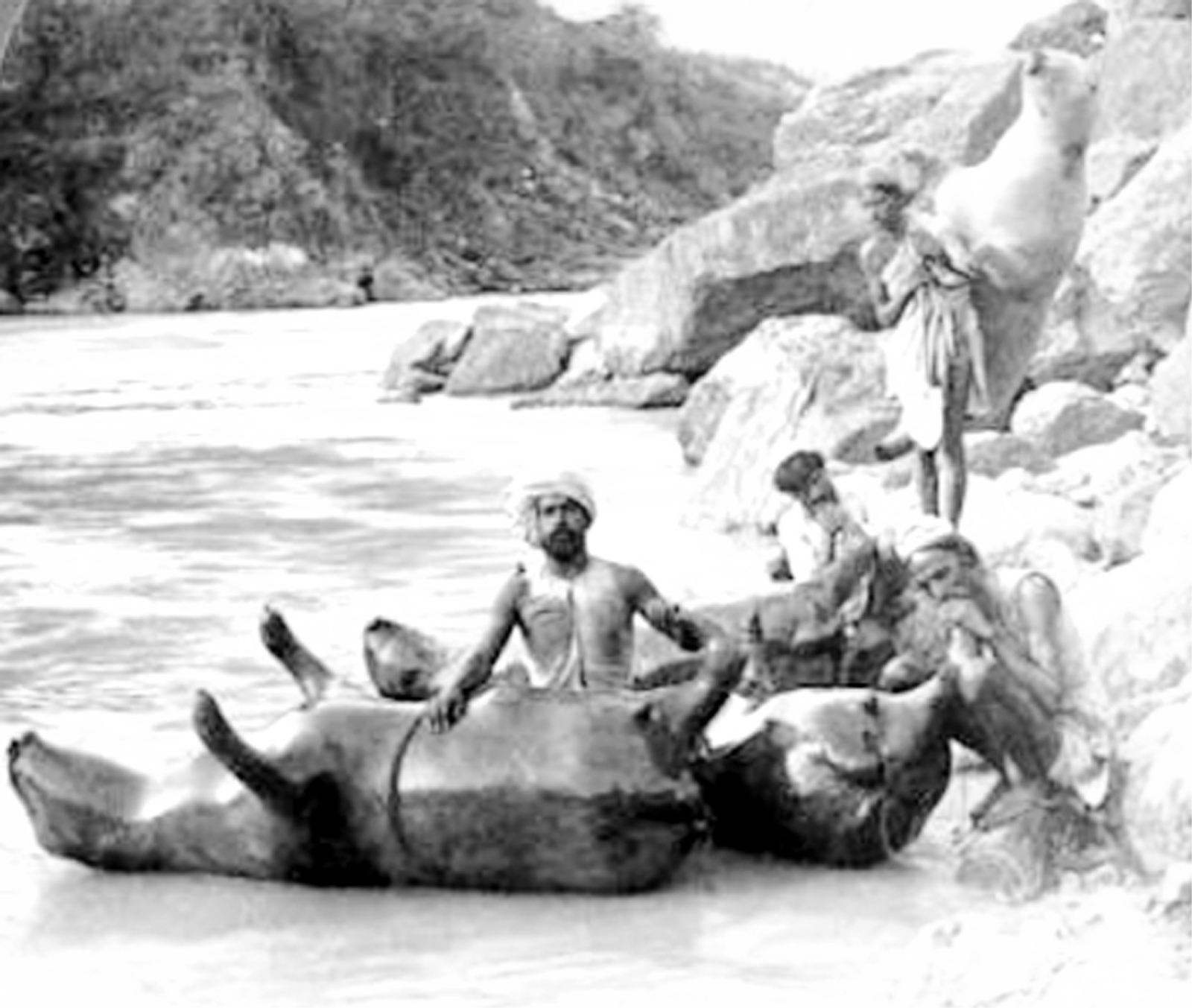Shiv Kumar Padha
The human brain has always been inventive, innovative and explorative since evolution. Guided by the inner urge to make life on the earth more easy, more comfortable and safe the human beings invented new implements of agriculture, ensured connectivity and developed means of water and surface transportation for performing quick and safe journey. Prior to the era of automation the human beings used bullock cart and the boats respectively for performing journeys on the land and surface of water respectively.
The type of water transport in the villages and the towns, situated on the banks of big rivers, depended upon the season, current of the waters and the condition of the banks of the river. Journey by boat proved safe during the winter season because the water of the river is usuall still and navigable whereas during the summer, when the rivers are always in spate due to floods and melting of mountain snow, a unique and indigenous floating device, locally called ‘Drayeen’made from the skinned buffalos, was used as a means of water transport. Due to the non availability of the water pumps the device was inflated with the human breath. In order to make it worth floating, each device was fitted with the wooden peg at the anus side of the devise so that each floater can get others support while rowing by holding the peg of the opposite device in their hands. These devices were put in the river in the pairs of two. The owner of (drayeen) laid on the device with his belly touching the belly of the buffalo like device while the passengers used to sleep over the backs of drayeen comfortably. The device once in the rough river frightened even the bravest of the braves. The device, though risky and looking dangerous always proved safe and successful.
Not to talk of carrying the passengers to other side of the river, Dolis, Dahez complrising of big steel boxes and the beddings were transported with the help of Drayeen without any loss. Apart from these there were small one also for individual purpose. In the emergency these devices provided the services of Ambulance to shift the patients to the nearby city Pathankot for treatment. The whole trade between tehsil Basohli and other states was carried out with the help of boats during winter and with the help of Drayeen, when the rivers were in spate during rainy season or summer. As the whole relations of the Basohli area were either in rural Punjab or Himachal there used to be a good rush of the passengers from both sides of the river. The harbors of the boats were auctioned every year whereas the Drayeens were exempted because there was no permanent site at the banks to start from.
A special class of cobblers used to prepare Drayeens from the skin of buffalo. In order to ensure long life of the device and keep it in working conditions a mixture of oil extracted from devdar wood and the mustard was painted all over the device. The pungent smell of the drayeen sometimes caused nausea and headache.
During the old days the economic condition of the people was too poor to pay the nominal trip charges of the boat amounting to single paisa or Dhela i.e. less than a paisa. Simillarly the condition of the boatmen and that of drayeen called Maallah used to be pitiable and deplorable. They could not feed their families from the income they earned from boating and drayeen. In order to reciprocate and compensate these Mallahas for their services the natives used to provide them with cooked food and chapatees. During the Paanch vrats in the month of November all the families utilizing their services in odd hours feed them, helped them with cash and kind so that they can provide their valuable services to the society free from the care of feeding their families.
Today I think how noble, honest, sincere, social and helpful these persons used to be who, instead of caring for their individual families provided their services selflessly and smilingly. Though these professions have become obsolete during the modern age ,but still the Basohli people have been perpetuating the noble practice as a mark of respect for the profession of Mallahas. Hats off to these souls.


